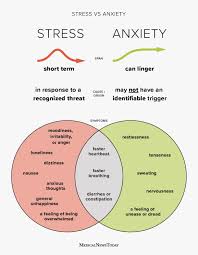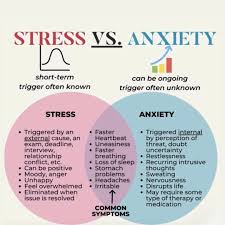The Power of Meditation for Stress and Anxiety Relief
In today’s fast-paced world, stress and anxiety have become common challenges that many people face. The constant demands of work, relationships, and daily responsibilities can take a toll on our mental and emotional well-being. Fortunately, meditation offers a powerful tool to help combat stress and anxiety, promoting inner peace and overall wellness.
How Does Meditation Help?
Meditation is a practice that involves focusing the mind on a particular object, thought, or activity to achieve mental clarity and emotional calmness. By training the mind to be present in the moment and cultivate mindfulness, meditation can help reduce stress and anxiety in the following ways:
- Stress Reduction: Meditation promotes relaxation by calming the mind and body, reducing the production of stress hormones like cortisol.
- Anxiety Management: Through mindfulness practices, meditation helps individuals observe their thoughts without judgment, leading to decreased anxiety levels.
- Improved Emotional Well-being: Regular meditation can enhance emotional resilience, allowing individuals to respond to challenging situations with greater composure.
- Enhanced Focus and Clarity: By training attention and concentration through meditation, individuals can improve their ability to focus on the present moment rather than worrying about the past or future.
Tips for Starting a Meditation Practice
If you’re new to meditation or looking to deepen your practice, consider the following tips:
- Start Small: Begin with just a few minutes of meditation each day and gradually increase the duration as you become more comfortable with the practice.
- Find a Quiet Space: Choose a peaceful environment where you can meditate without distractions to enhance your focus and relaxation.
- Use Guided Meditations: Utilize guided meditation apps or recordings to assist you in your practice, especially if you’re unsure where to start.
- Be Patient with Yourself: Remember that meditation is a skill that takes time to develop; be gentle with yourself as you navigate your practice.
The Benefits of Consistent Practice
Consistency is key when it comes to reaping the full benefits of meditation for stress and anxiety relief. By incorporating regular meditation into your daily routine, you can experience long-term improvements in your mental well-being, emotional stability, and overall quality of life.
If you’re seeking effective ways to manage stress and anxiety in your life, consider integrating meditation into your self-care routine. With dedication and practice, meditation can be a transformative tool for cultivating inner peace and resilience in the face of life’s challenges.
“Soothing the Mind: Types of Meditation That Alleviate Stress”
“The Calming Power of Meditation: Easing Stress and Anxiety”
4.
- How do I stop overthinking and anxiety meditation?
- What type of meditation reduces stress?
- Can meditation help with stress and anxiety?
- What meditation reduces anxiety?
- How can I reduce stress and anxiety?
How do I stop overthinking and anxiety meditation?
One common concern when it comes to using meditation for managing stress and anxiety is how to stop overthinking during the practice. Overthinking and anxiety can often go hand in hand, making it challenging to quiet the mind and achieve a state of calmness. In such cases, focusing on mindfulness techniques within meditation can be particularly helpful. By gently redirecting your attention back to the present moment whenever intrusive thoughts arise, you can gradually train your mind to let go of overthinking and reduce anxiety levels. Consistent practice and patience are key in developing this skill, allowing you to cultivate a sense of inner peace and mental clarity over time through meditation.
What type of meditation reduces stress?
Certain types of meditation have been shown to be particularly effective in reducing stress levels. Mindfulness meditation, for example, is widely recognized for its ability to cultivate present-moment awareness and promote relaxation, making it a popular choice for stress reduction. By focusing on the breath, bodily sensations, or thoughts without judgment, mindfulness meditation helps individuals develop a greater sense of calm and resilience in the face of stressors. Other types of meditation that can help reduce stress include loving-kindness meditation, which fosters feelings of compassion and connection, and guided imagery meditation, which uses visualization techniques to promote relaxation and emotional well-being. Experimenting with different forms of meditation can help individuals find the practice that best suits their needs for managing stress and anxiety effectively.
Can meditation help with stress and anxiety?
Many individuals wonder, “Can meditation help with stress and anxiety?” The answer is a resounding yes. Meditation has been shown to be a powerful tool for managing stress and anxiety by promoting relaxation, mindfulness, and emotional well-being. Through regular practice, individuals can cultivate a sense of inner peace, reduce the impact of stress hormones, and develop greater resilience in the face of life’s challenges. By focusing on the present moment and observing thoughts without judgment, meditation empowers individuals to navigate stress and anxiety more effectively, leading to improved mental health and overall quality of life.
What meditation reduces anxiety?
When it comes to reducing anxiety through meditation, mindfulness meditation is often recommended as an effective practice. Mindfulness meditation involves focusing on the present moment without judgment, allowing individuals to observe their thoughts and emotions with acceptance. By cultivating mindfulness through regular practice, individuals can develop greater awareness of their anxiety triggers and learn to respond to stressful situations with a sense of calm and clarity. This form of meditation has been shown to help reduce anxiety levels and promote emotional well-being by fostering a more peaceful and centered state of mind.
How can I reduce stress and anxiety?
To reduce stress and anxiety, incorporating meditation into your daily routine can be highly beneficial. Meditation offers a powerful way to calm the mind, promote relaxation, and cultivate mindfulness, which can help alleviate the symptoms of stress and anxiety. By dedicating even just a few minutes each day to meditation practice, you can experience a sense of inner peace, improved emotional well-being, and enhanced resilience in the face of life’s challenges. Through consistent practice and patience with yourself, meditation can serve as a valuable tool in managing stress and anxiety effectively.




